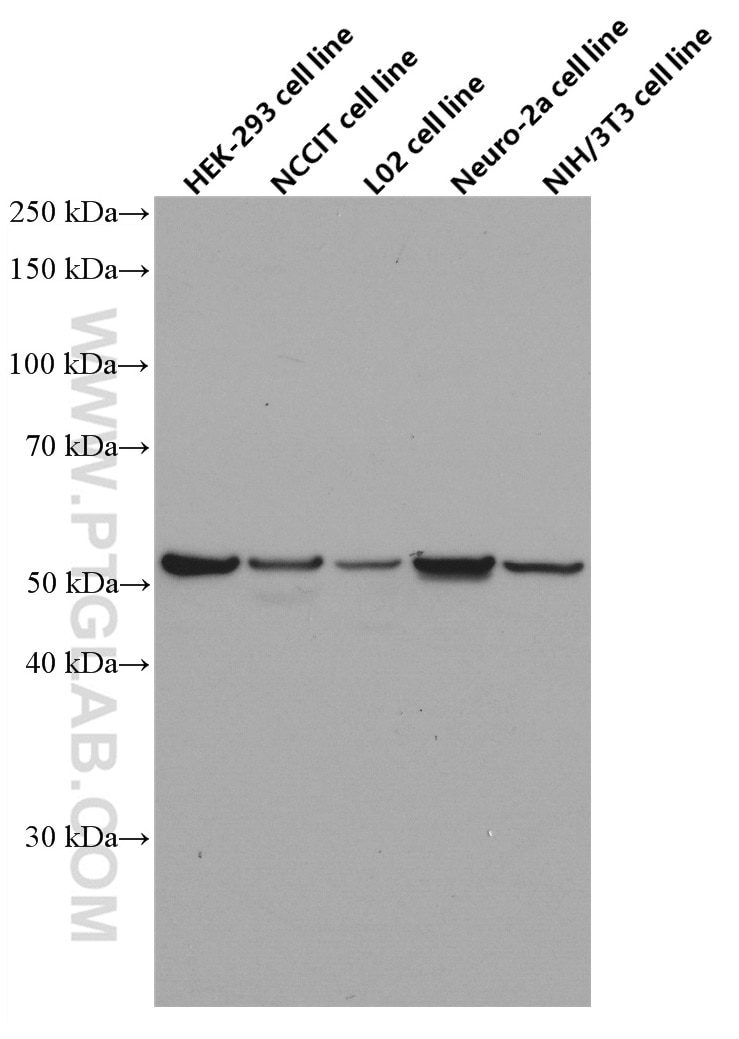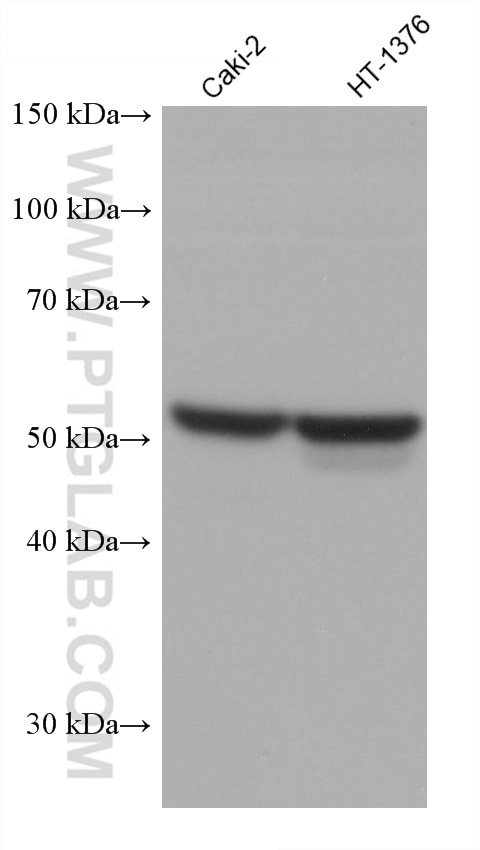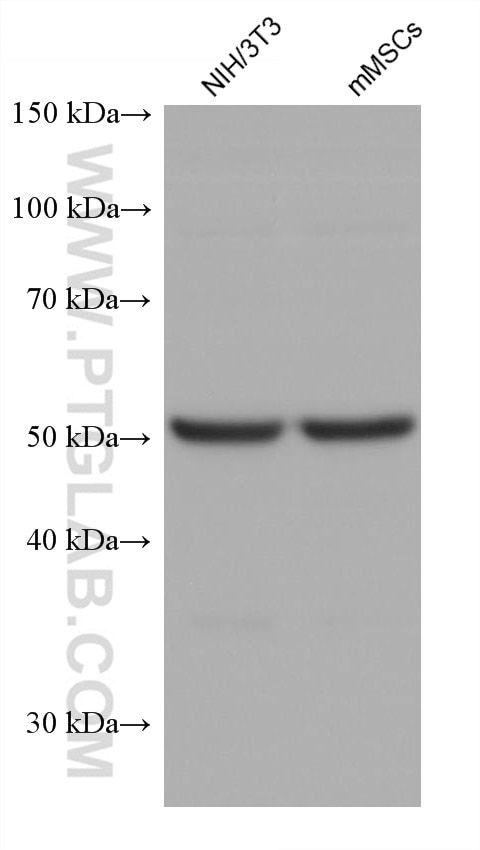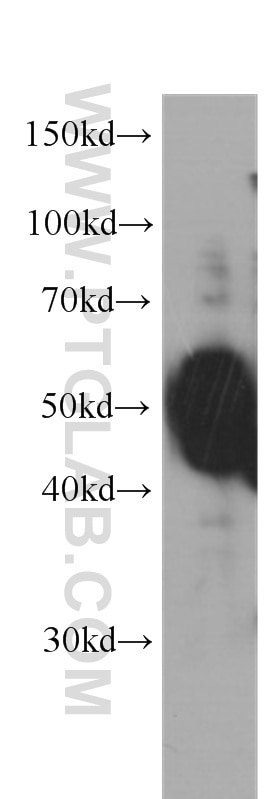Product Information
60242-1-PBS targets OCT4/POU5F1 in WB, Indirect ELISA applications and shows reactivity with human, mouse, rat samples.
| Tested Reactivity | human, mouse, rat |
| Host / Isotype | Mouse / IgG1 |
| Class | Monoclonal |
| Type | Antibody |
| Immunogen |
CatNo: Ag1794 Product name: Recombinant human OCT4 protein Source: e coli.-derived, PGEX-4T Tag: GST Domain: 102-265 aa of BC020712 Sequence: MCKLRPLLQKWVEEADNNENLQEICKAETLVQARKRKRTSIENRVRGNLENLFLQCPKPTLQQISHIAQQLGLEKDVVRVWFCNRRQKGKRSSSDYAQREDFEAAGSPFSGGPVSFPLAPGPHFGTPGYGSPHFTALYSSVPFPEGEAFPPVSVTTLGSPMHSN Predict reactive species |
| Full Name | POU class 5 homeobox 1 |
| Calculated Molecular Weight | 39 kDa |
| Observed Molecular Weight | 50-52 kDa |
| GenBank Accession Number | BC020712 |
| Gene Symbol | POU5F1 |
| Gene ID (NCBI) | 5460 |
| RRID | AB_2881364 |
| Conjugate | Unconjugated |
| Form | Liquid |
| Purification Method | Protein G purification |
| UNIPROT ID | Q01860 |
| Storage Buffer | PBS only, pH 7.3. |
| Storage Conditions | Store at -80°C. |
Background Information
Background
Octamer-binding protein 4 (OCT4), also known as POU5F1 or OCT3/4, is a member of the POU gene family and encoded by the human gene POU5F1 (POU domain class 5 transcription factor 1). OCT4 is a member of the Octamer class of transcription factors that recognize the 8-base pair consensus motif 5'-ATGCAAAT-3'. Expression of OCT4 is associated with an undifferentiated, pluripotent stem cell phenotype and tumors. OCT4 is also expressed in the developing brain, with the highest levels found in the cortex, olfactory bulb, and the hippocampus.
What is the molecular weight of OCT4?
The molecular weight of OCT4 is 38 kDa.
What are the isoforms of OCT4?
The human POU51F gene consists of five exons located on chromosome 6 and can generate three mRNA isoforms through alternative splicing - OCT4A, OCT4B, and OCT4B1 (PMID: 18787205). OCT4A and OCT4B1 orchestrate gene transcription in the nucleus supporting self-renewal and pluripotency maintenance in ESCs and embryonal carcinoma cells, whereas OCT4B is localized in the cytoplasm in various non-pluripotent cell types and cannot sustain self-renewal and pluripotency.
What is OCT4's involvement in pluripotency and self-renewal?
OCT4 forms a trimeric complex with SOX2 and DNA to control the expression of genes involved with embryonic development, such as FGF4 (PMID: 10801796), UTF1 (PMID: 10409735), or even NANOG (PMID: 15743839). OCT4 is critical for early embryogenesis (PMID: 9814708) and for embryonic stem cell pluripotency (PMID: 16153702). High levels of OCT4 are associated with the ability to self-renew, which is emphasized by OCT4 gene knockdowns promoting differentiation (PMID: 10742100). OCT4 is also one of the four key transcription factors used to generate induced pluripotent stem cells (iPSCs) by reprogramming fibroblasts to a pluripotent state (PMID: 16904174).










